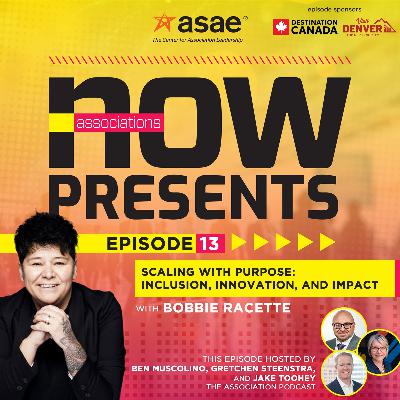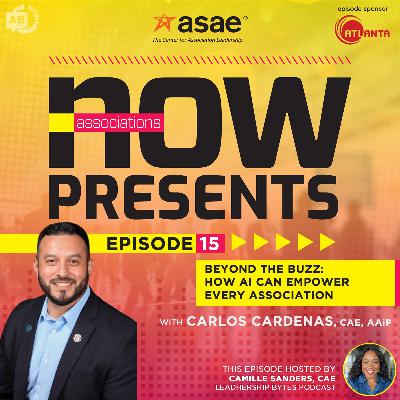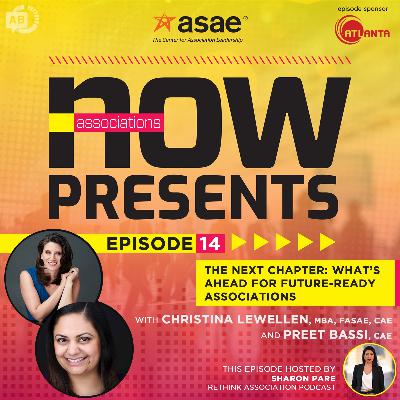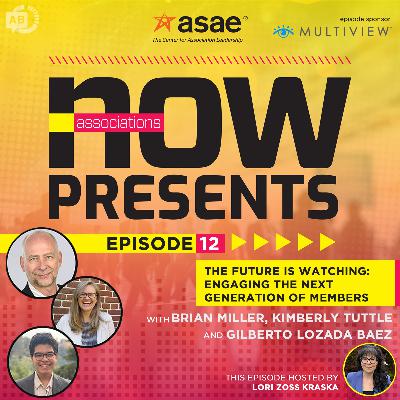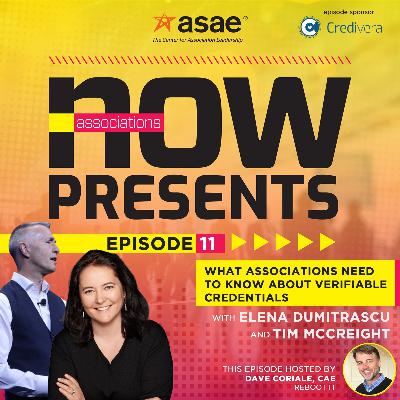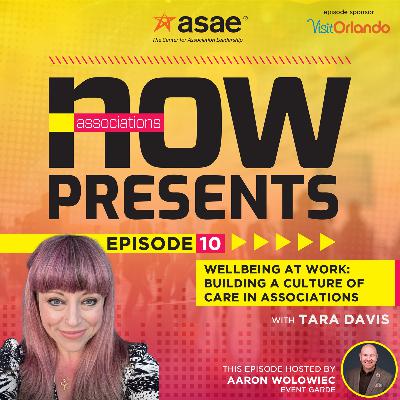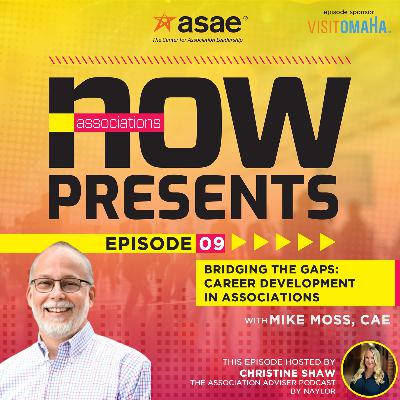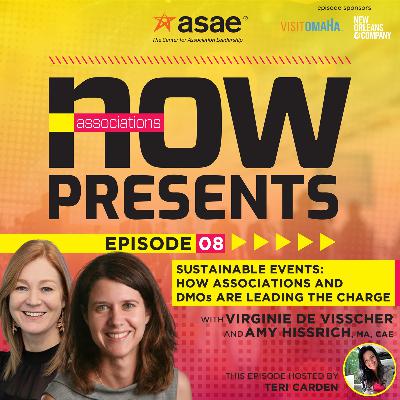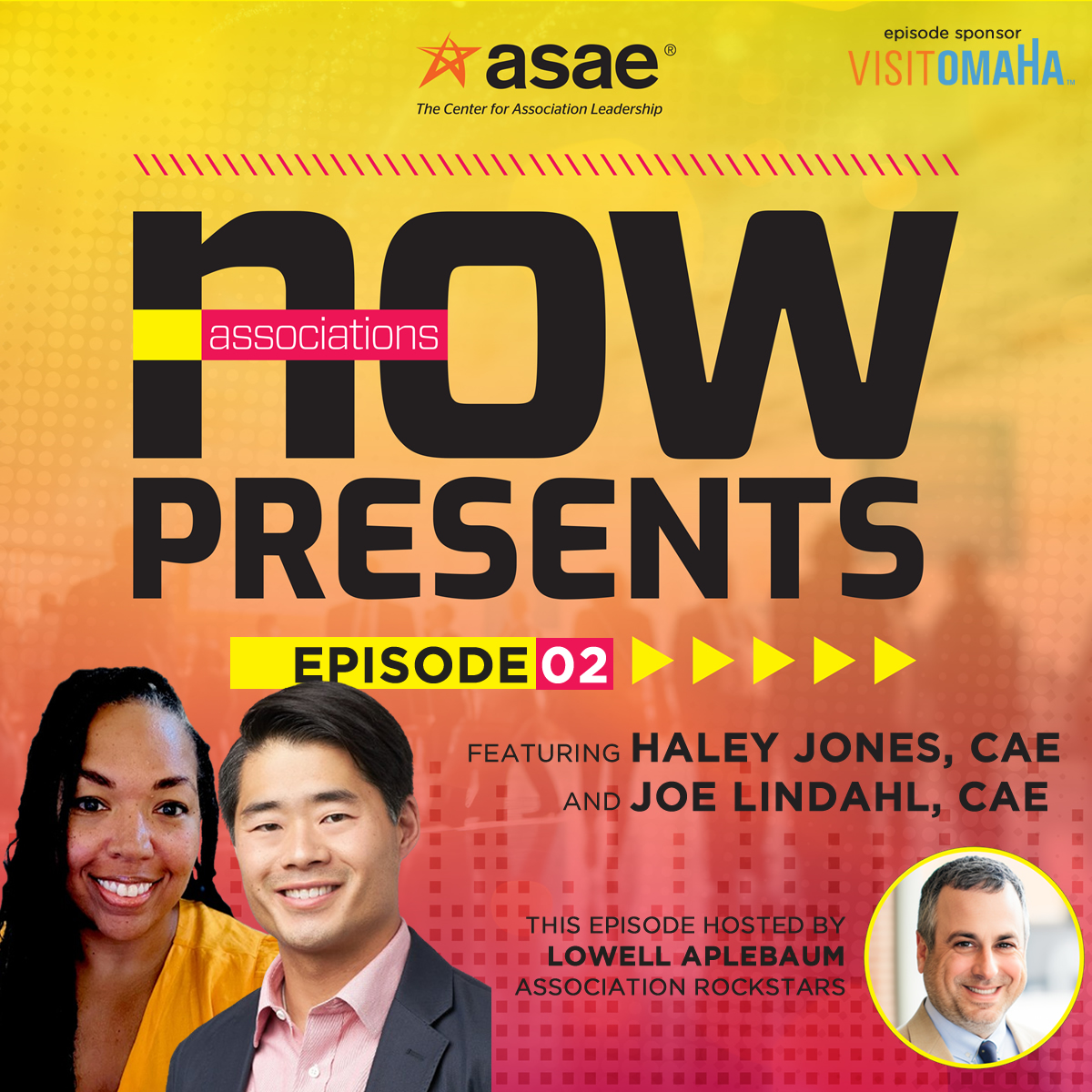Scaling with Purpose: Inclusion, Innovation, and Impact
Description
Season 2 kicks off live from the ASAE Annual Meeting & Exposition in Los Angeles! Guest hosts Ben Muscolino, Gretchen Steenstra, and Jake Toohey of The Association Podcast sit down with Bobbie Racette, founder and president of Virtual Gurus. Bobbie shares her inspiring journey as an Indigenous queer woman in tech, from launching Virtual Gurus in 2016 to scaling it into a thriving, values-driven company. She opens up about overcoming challenges, securing funding, leading through COVID-19, and the critical role of company culture. The conversation explores how Virtual Gurus is integrating AI responsibly, Bobbie’s vision for global expansion, and audience questions on building inclusive workplaces and communities.
This episode is sponsored by Destination Canada and Visit Denver.
Associations NOW Presents is produced by Association Briefings.
Transcript
Ben Muscolino: [00:00:00 ] Hello everyone and welcome to the Associations NOW Presents podcast live from the show floor here at ASAE 25. I am Ben Muscolino with Brezio, AMS Geek, and Data Sangria. I'm here with my co-hosts of The Association Podcast. Jake and Gretchen. We are so excited to be bringing our format and our passion for the industry over the Associations NOW Presents podcast.
We have an incredible guest today and I'm gonna kick it over to one of my co-hosts and we're gonna get that going. So glad you're here with us today.
Gretchen Steenstra: So I am Gretchen Steenstra, the permanent/temporary guest co-host. I think I came for five episodes and I don't know how many, maybe 50 now. My day job, I work at DelCor, a technology consulting company, and one of my passion projects is I'm a founder of AWTC, which supports women in tech and part of tech council and [00:01:00 ] all the association families.
So I'm really happy to be here and nice to meet you today.
Jake Toohey: Hey, I'm Jake Toohet. I am the director of the association practice at Adage Technologies. We're a digital strategy, web development and design firm, and, work with all associations. And we are thrilled to have Bobby Racette, Virtual Guru's, former CEO, now president, founder.
So thrilled to have you. Can you start by just talking a little bit about what you do and your background and just kick it off from there.
Bobbie Racette: Yeah. Hi. Thanks everyone. This is amazing. So founder and CEO of Virtual Gurus. So I started Virtual Gurus in 2016 because nobody would give me a job. I was looking for work for, I don't know, close to a year, and nobody would give me a job at all.
So I actually started it just to create a job for myself. And at the time, I had no idea I was gonna scale into this big thing. It was gonna go where it went. I had no idea that it was gonna be AI eventually, and that there'd be thousands of people working in the [00:02:00 ] platform. But here I am and happy to be here.
Ben Muscolino: Hey, Bobbie. We're storytellers in the association space. Your story is so incredible. We wanna talk with you about several things today, but to get things kicked off, talk to us about what you've been up to this morning and the session that you led. How was that for you?
Bobbie Racette: I've been traveling a lot talking about my story.
I actually just flew in from Japan and I was speaking out at the World Expo, which has been amazing. Such an amazing experience. Just to be saying that I'm speaking and I'm out at the expo. I was there on a trades mission and just really telling the story, but this morning it was really just about telling my journey and about culture and my journey of being an indigenous queer woman in technology and how hard it's been to get to where I am today, and meant to raising millions and millions of dollars to run the company and to build the AI.
Now we're scaling globally, and I was actually in Japan meeting with senior leaders like the CEO of Mitsubishi to try to get our AI out [00:03:00 ] there a little bit more. So it's been a pretty crazy ride these last few weeks.
Ben Muscolino: Bobbie we have so many things that we wanna learn about you, but I'm very interested in what was the turning point where you realized that you wanted to start virtual gurus?
What was that catalyst? Because you kind of talked a little bit about the need to want to create work for yourself. Was that really the catalyst moment? Talk to us about that.
Bobbie Racette: Yeah. I was working in oil and gas in Calgary, Alberta, Canada, where a lot of people are working oil and gas. But layoffs came like when the gas prices dropped, and I think 37,000 people were laid off within one day, and I was one of those people.
But when everybody went into the city and was trying to find work. By the time I got there, all the jobs were either being taken up, but all of the people that were more qualified or maybe fit their culture more got the jobs over me. And so I was looking for work for so long and nobody would hire me at all.
I don't know what it was. I'd like to say maybe it's just 'cause of who I am, [00:04:00 ] but a queer woman in tech and nobody would hire me. So I actually created a job for myself. I was the virtual assistant. I wasn't actually planning to scale it, I was just doing it to create a job for myself and. I had 19 clients, so I started with $300 in my pocket and I bootstrapped it to 1.8 million in revenue.
And then I realized I needed to hire, and then I needed to raise money and there's a lot of work to do. And so I closed my first funding round in 2020. The light bulb went on, why don't I start this platform to create work for people like me? And then all of a sudden, the platform just went wild.
Ben Muscolino: So the serendipitous timing.
Where everyone that maybe got to the jobs before you did and then you raising money in 2020 and scaling when you did. What an incredible twist of timing for business being in 2020 when everything went virtual. Right?
Bobbie Racette: Everything went virtual, and then I closed three funding rounds during [00:05:00 ] COVID, which nobody was investing at the time because they were so scared to use their dry powder.
But I was like, let's go and, and it worked well. We scaled 300% year overgrowth through every year and through COVID through three years.
Gretchen Steenstra: So you were describing how difficult that was. Were there assumptions you made and had to adjust throughout these cycles? Like you said in the very beginning, you didn't know how to raise funds and people were turning you down.
But as you matured and evolved, what are the assumptions you're facing now that you assume when you're going out for funding or building your company, that you have to adjust and.
Bobbie Racette: Yeah, I guess the landscape has changed so much from COVID. Before COVID, it was scary. People weren't really interested in the freelancing platforms and it wasn't as well known.
And then COVID hit and then everybody went remote and everybody was laid off their jobs. So people started going to platforms like ours. All the administrative people were getting laid off and then they came to me and so I was picking them up and recycling them back out and cold calling [00:06:00 ] the companies that were laying people off during COVID.
And I'm basically saying. Your company still needs to open and function, so we got E four back office support. The thing for us was just assuming that we were gonna be bigger then, and we were just gonna scale and we leveraged COVID for that and I was quite surprised with where it went. During that time.
We built out a people over profit program. So all the startups that were struggling to pay the bills, we gave them free virtual assistants. Oh wow. Yeah, yeah. Right after I closed my first finding round. So I'm like, thanks, invest. Or by the way, I'm gonna give free service those away
Jake Toohey: There's one of the things that I took away from your session this morning was the culture thing.
Yeah. The kind of culture that you built at the organization. And I think, you know, one of the things that I, I remember is you saying that you used to hear the resumes hit the bottom of the trash can. You never wanted to make anybody else feel like that. Can you talk about that involving culture and what's driving that?
Bobbie Racette: Yeah. This was back when you used to go to the offices and hand in your resume 20 16, [00:07:00 ] 20 17. And like I said, nobody would hire me and I would literally go to leave the office and I could hear a piece of paper hitting the trash can and I knew that was my resume and it just made me so angry and sad. And essentially that's almost what powered my thesis on if we provide more work to marginalized communities, then.
We can't let people shine if we're gonna keep doing that. 'cause surely if I'm feeling that, then how many others were feeling it. But it did was inspire me and fuel me to keep going and to create this. I guess some will say I created it out of anger, but I really just created it out of spite. I thought “you all told me no so many times that I'm going to take my own control now.”
Gretchen Steenstra: Yeah. But I, I don't even know if it was spite you were just so passionate about. I found this, and a lot of the things you do, which I think is really interesting is you formed it into repeatable like almost products. So I'm looking at your culture cleanup toolkit. And so in addition to running a company, raising [00:08:00 ] money, growing the company, taking care of your employees, you also seem to have packaged some of these thesis state

